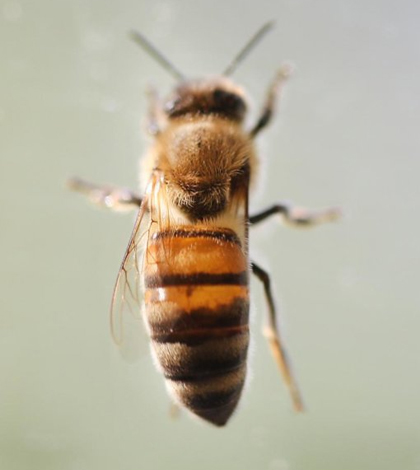Goldenrod Pollen Less Nutritious For Bees Due To Climate Change

Bees rely on goldenrod pollen as a food source, but rising CO2 levels are making it less nutritious. (Credit: Tom Campbell / Purdue University)
Yet another factor has emerged that is putting stress on bee colonies: Goldenrod pollen is now less nutritious than it used to be. It contains about a third less protein than it did around the beginning of the Industrial Revolution, scientists from Purdue University report in a new study.
Other plants such as wheat and rice have also shown drops in nutritional value over the same time period. It is believed that while climate change has in many cases caused plants to experience more growth due to excess CO2 in the atmosphere, they also experience a drop in nutrient concentration.
Researchers used historical and experimental pollen to look at the trend in the amount of protein contained in the pollen from 1842-2014. The samples dropped in protein concentration by about a third over the study period, with the greatest drop in protein corresponding to the largest rise in CO2, a period from about 1960-2014. A two-year field experiment exposing Goldenrod to increased levels of CO2 confirmed the relationship between higher CO2 and lower amounts of protein in the pollen.
Top image: Bees rely on goldenrod pollen as a food source, but rising CO2 levels are making it less nutritious. (Credit: Tom Campbell / Purdue University)




0 comments